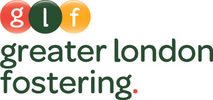The New Framework for Missing Children and Young People: A Fantastic Initiative
Introduction
The new framework for missing children and young people is a significant initiative aimed at ensuring the safety and wellbeing of children in the care of local authorities in England. Developed by the National Task and Finish Group, led by the National Police Chief’s Council, with contributions from The Fostering Network, the framework provides a comprehensive approach to handling cases involving children and young people who go missing from care.
The Purpose of the Framework
The overall aim of the framework is to ensure that all children in the care of a local authority in England receive an appropriate and timely response when they are not where they are expected to be. The framework is designed to reduce risk and harm, enable a child’s safe return, and prevent repeat missing occurrences.
The Escalation Process
A key component of the new framework is the Missing Children Escalation Policy. This policy provides a clear pathway for partner agencies to raise issues to senior leaders with authority to resolve concerns relating to issues such as agency response, resource issues impacting response to children, over-reporting of children as missing, suitability of a placement, and professional differences regarding responses to individual children.
Levels of Intervention
The framework outlines different levels of intervention based on the assessed level of concern for the child's safety. These levels range from 'No Immediate Intervention Required' to 'Police Intervention', with specific actions and outcomes outlined for each level.
The Role of Carers and Professionals
Carers and professionals play a crucial role in the implementation of the new framework. They are often in the best position to determine if a child is at risk of harm or poses a risk to others when the child’s whereabouts is unknown. The decision to report a child as missing must always be undertaken with the best interests of the child in mind.
The Importance of Multi-Agency Collaboration
The framework emphasises the importance of a partnership approach in which the police, carers, the local authority, and other partner agencies work together in the best interests of the child to ensure their wellbeing and safety.
The Role of Local Authorities, Police, and Fostering Agencies
Local authorities, police, and fostering agencies are key stakeholders in the implementation of the new framework. They are responsible for developing local Missing Children Policies and Procedures that comply with the statutory guidance.
The Impact of the Framework
The new framework is expected to have a significant impact on the handling of cases involving children and young people who go missing from care. It aims to reduce the likelihood of children going missing, enhance the safety and wellbeing of children, and improve the response to missing occurrences.
Reducing the Risk of Children Going Missing
By providing clear guidelines and procedures, the framework aims to reduce the likelihood of children going missing. It encourages a coordinated, consistent, child-centred, and restorative approach to working with children, which can help create placement stability and reduce the likelihood of children going missing.
Enhancing the Safety and Wellbeing of Children
The framework is designed to enhance the safety and wellbeing of children. It ensures that all absence or missing occurrences warrant professional attention to help safeguard children. It also promotes understanding of the push and pull factors and any patterns related to a child’s missing occurrences, which can help professionals identify potential risks and harm a child may be experiencing.
Conclusion
The new framework for missing children and young people is indeed a fantastic initiative. It provides a comprehensive approach to handling cases involving children and young people who go missing from care. By promoting a partnership approach and providing clear guidelines and procedures, the framework is set to make a significant impact on the safety and wellbeing of children in care.
FAQs
- What is the purpose of the new framework for missing children and young people?
The framework aims to ensure that all children in the care of a local authority in England receive an appropriate and timely response when they are not where they are expected to be. It is designed to reduce risk and harm, enable a child’s safe return, and prevent repeat missing occurrences. - What is the Missing Children Escalation Policy?
The Missing Children Escalation Policy is a part of the new framework. It provides a clear pathway for partner agencies to raise issues to senior leaders with authority to resolve concerns relating to issues such as agency response, resource issues impacting response to children, over-reporting of children as missing, suitability of a placement, and professional differences regarding responses to individual children. - What role do carers and professionals play in the implementation of the new framework?
Carers and professionals play a crucial role in the implementation of the new framework. They are often in the best position to determine if a child is at risk of harm or poses a risk to others when the child’s whereabouts is unknown. The decision to report a child as missing must always be undertaken with the best interests of the child in mind. - How does the framework aim to reduce the risk of children going missing?
The framework encourages a coordinated, consistent, child-centred, and restorative approach to working with children, which can help create placement stability and reduce the likelihood of children going missing. It also provides clear guidelines and procedures to ensure an appropriate response when a child is not where they are expected to be. - How was the new framework launched?
The new framework was launched at the National Missing People Conference, followed by a virtual information session. These events provided an opportunity for professionals in local authorities, police, the Fostering Network, and similar organisations to learn about the framework and its implementation.

